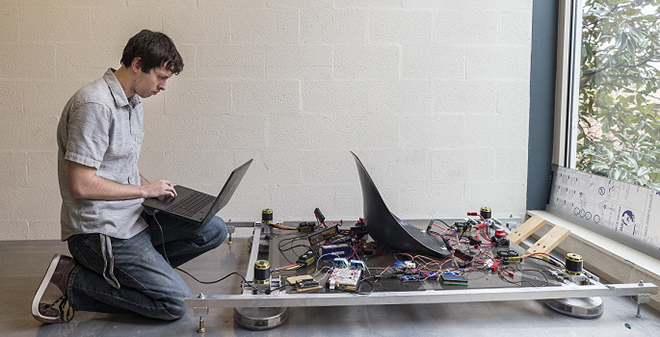A pair of Vanderbilt University researchers have developed a battery management device that could increase the useful range of a battery pack by controlling each cell individually.
Ken Pence, Professor of the Practice of Engineering Management, and Tim Potteiger, a PhD student in electrical engineering, used the open-source Tesla battery to model their technique, adding a controller to each of the battery’s cells. Their device reconfigures battery modules to be online or offline, depending on whether or not they’re affecting other modules.
“We know there are some battery cells that run out of juice earlier than others, and when they do, the others run less efficiently,” said Potteiger. “We make sure they all run out of energy at the same time, and there’s none left over.”
EV battery gauges typically give a worst-case scenario on the amount of power left so that users don’t get stranded, Potteiger explains. That means they commonly show that a battery is empty when in fact it has 10% or more power left. The new device can connect to an EV’s software to give a more accurate reading, allowing drivers to get the most range out of a charge.
The older the batteries are, the more likely they are to experience problems that make them less efficient, and the more useful the team’s device becomes, said Pence. “They’ll have a longer useful service life. Drivers won’t see the 50-percent [range improvement] immediately, but they will later on in the life of the battery.”
The two are working with the Vanderbilt Center for Technology Transfer and Commercialization to get the device to market.
Source: DOE Science News Source




















































